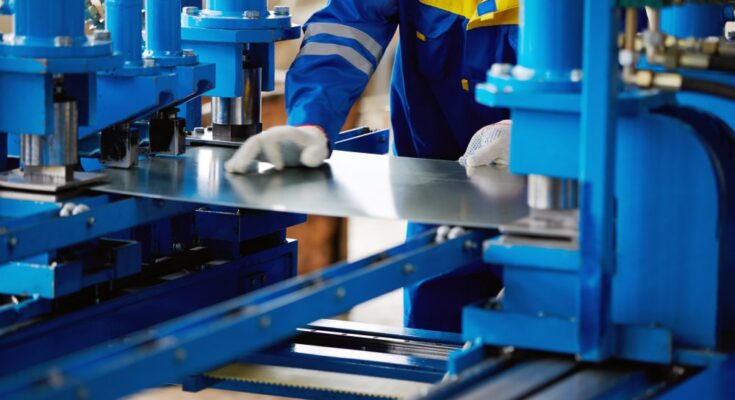Sheet metal is a foundational material in today’s industrial world, known for its versatility and strength. It plays a crucial role in various sectors, transforming basic metals into flexible sheets that can be molded into diverse structures. Continue reading for a thorough exploration of the industrial uses of sheet metal, reviewing its importance and wide-ranging capabilities.
Automotive Industry
In the automotive industry, sheet metal is a staple material that’s essential for crafting vehicle bodies, frames, and components. Its durability and malleability allow manufacturers to shape it into complex designs, ensuring both aesthetic appeal and structural integrity. Most vehicles on the road have an exterior crafted from sheet metal, which provides a sturdy shell that protects the vehicle’s occupants and mechanical parts.
Sheet metal fabrication techniques such as stamping and welding efficiently produce precise and uniform vehicle parts. This efficiency speeds up production lines and enhances the quality and safety of the final product, making sheet metal indispensable in automotive manufacturing.
Construction Sector
Sheet metal’s role in construction is indispensable, providing critical function and support in building projects. It is widely used in roofing and siding due to its weather-resistant properties and ability to withstand environmental stressors. Sheet metal panels are lightweight yet strong, offering an excellent balance that minimizes the load on building structures while providing long-lasting protection.
In addition to roofing, sheet metal is used for ductwork, gutters, and even structural elements, showcasing its versatility in construction applications. Its durability and adaptability make it a preferred choice for architects and engineers aiming to create sustainable and resilient buildings.
Aerospace Applications
The aerospace sector relies heavily on sheet metal for its unique properties, which are vital for aircraft manufacturing. This material can withstand extreme temperatures and pressures—essential qualities for components exposed to harsh flight conditions.
Sheet metal is used in the fabrication of aircraft skins, wings, and fuselage components, serving as a protective outer layer that maintains the aircraft’s aerodynamic shape. Its lightweight nature reduces overall aircraft weight, improving fuel efficiency without sacrificing strength. The precise engineering of sheet metal ensures the high level of safety and performance demanded by this industry.
Electronics and Appliances
Sheet metal plays a significant role in the production of consumer electronics and household appliances, providing both structure and protection. In electronics, casings and enclosures are crafted from sheet metal, safeguarding delicate components from damage and electromagnetic interference. This application is crucial for devices such as computers, televisions, and smartphones, where reliability and durability are paramount.
In household appliances, sheet metal forms the exterior shells and internal frames of products like refrigerators, ovens, and washing machines. Its resilience ensures these appliances can withstand everyday wear and tear, delivering longevity and maintaining their aesthetic appeal.
Sheet metal’s adaptability and strength underpin its wide-ranging applications across various industries. Whether you’re buying a new car or considering a home renovation, understanding the industrial uses of sheet metal can offer insights into its critical contributions to quality and innovation.



